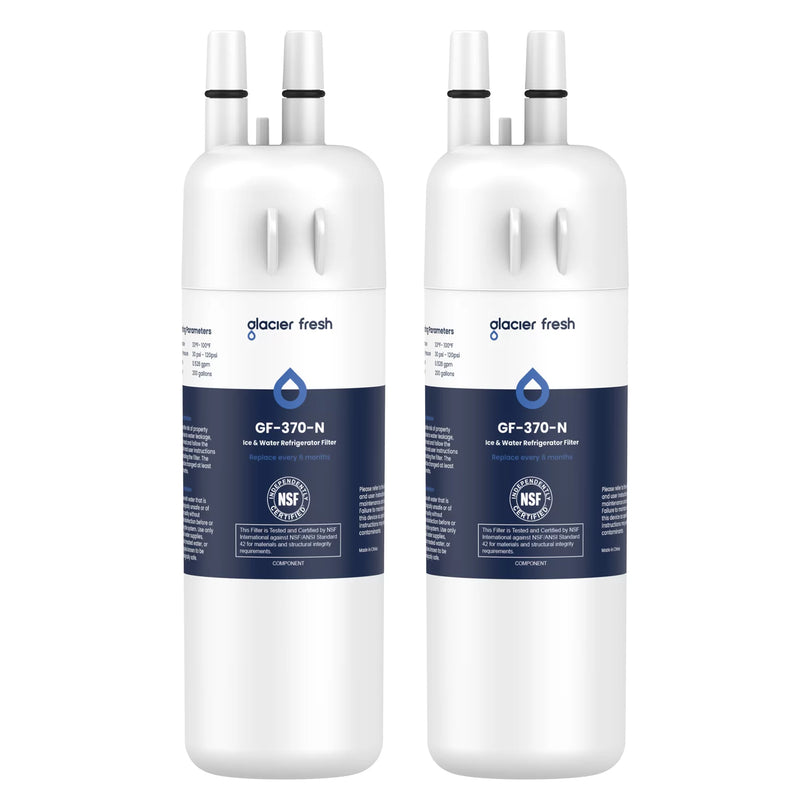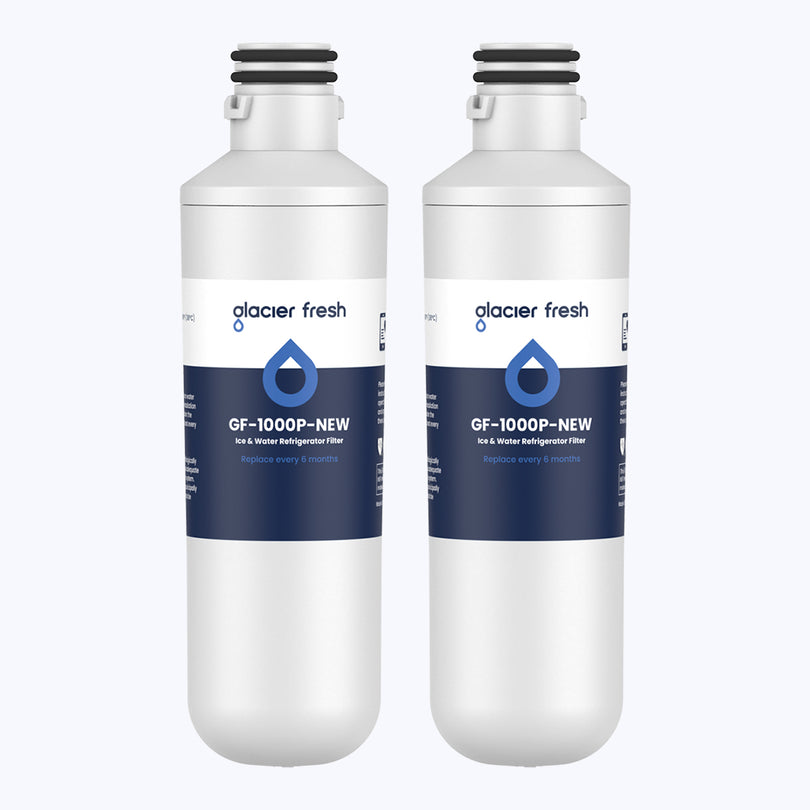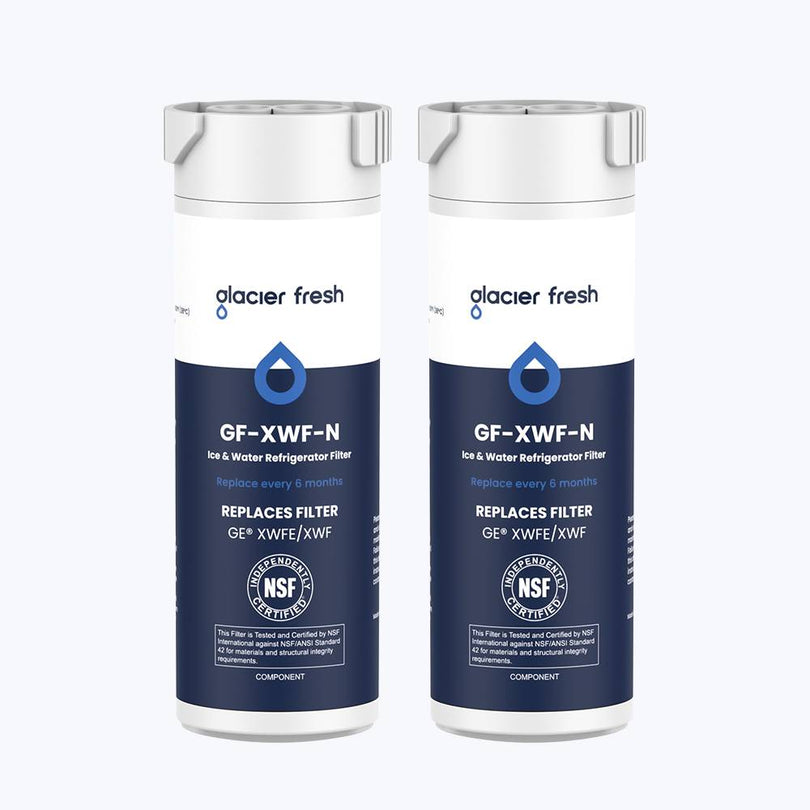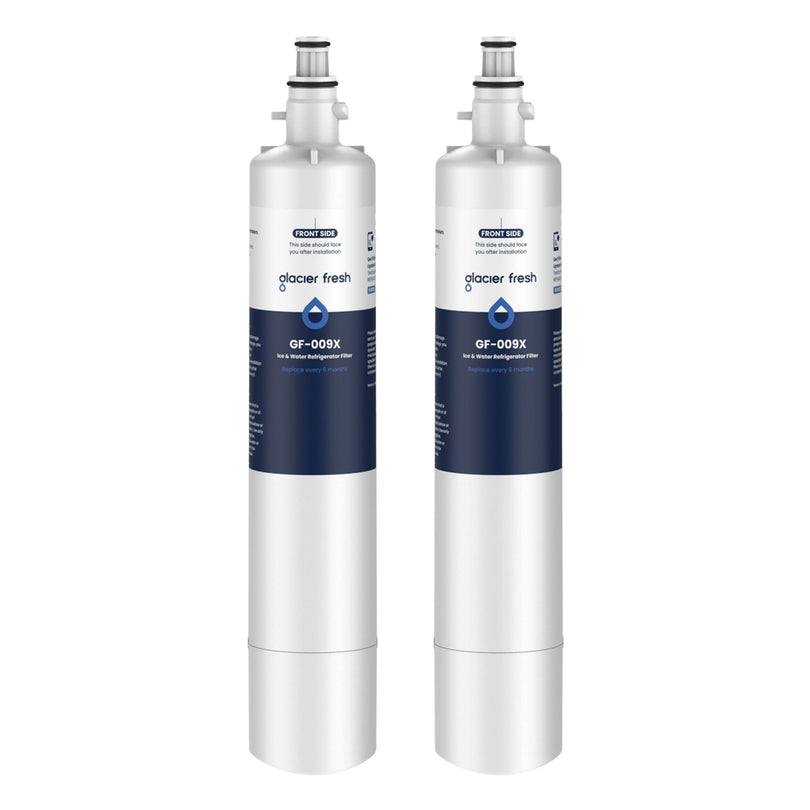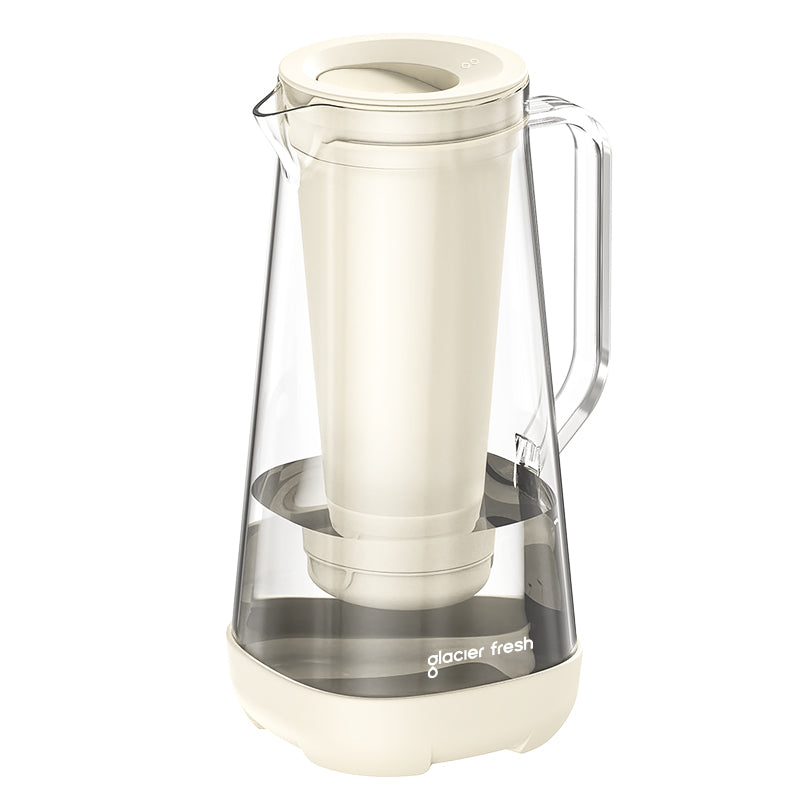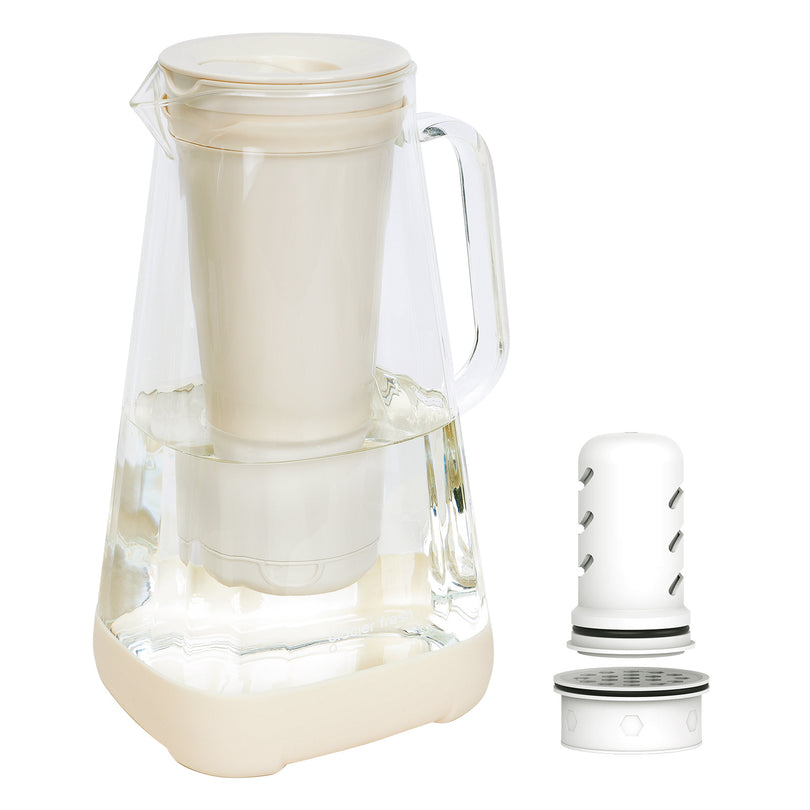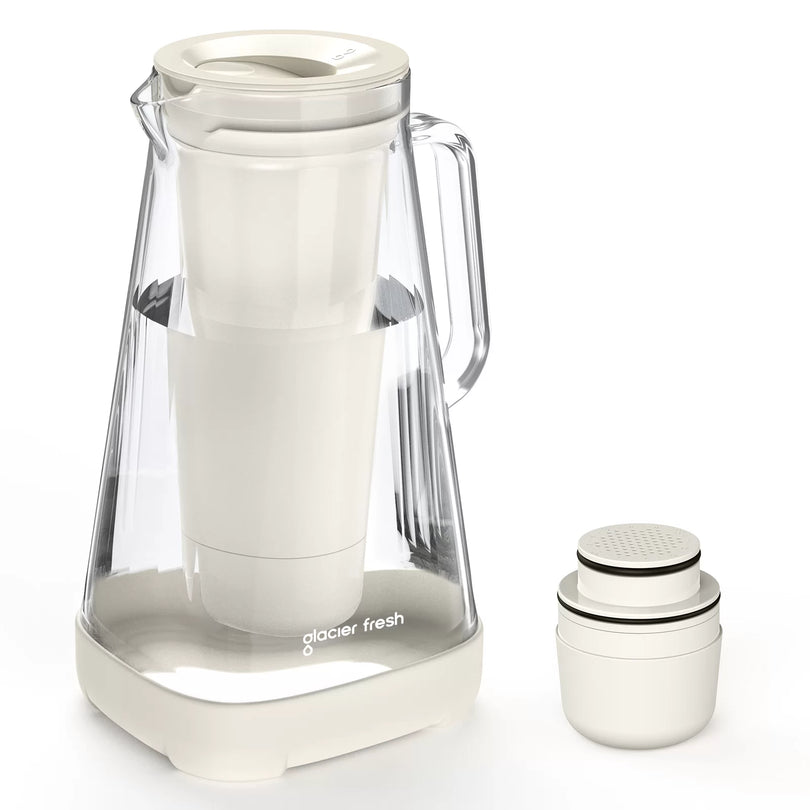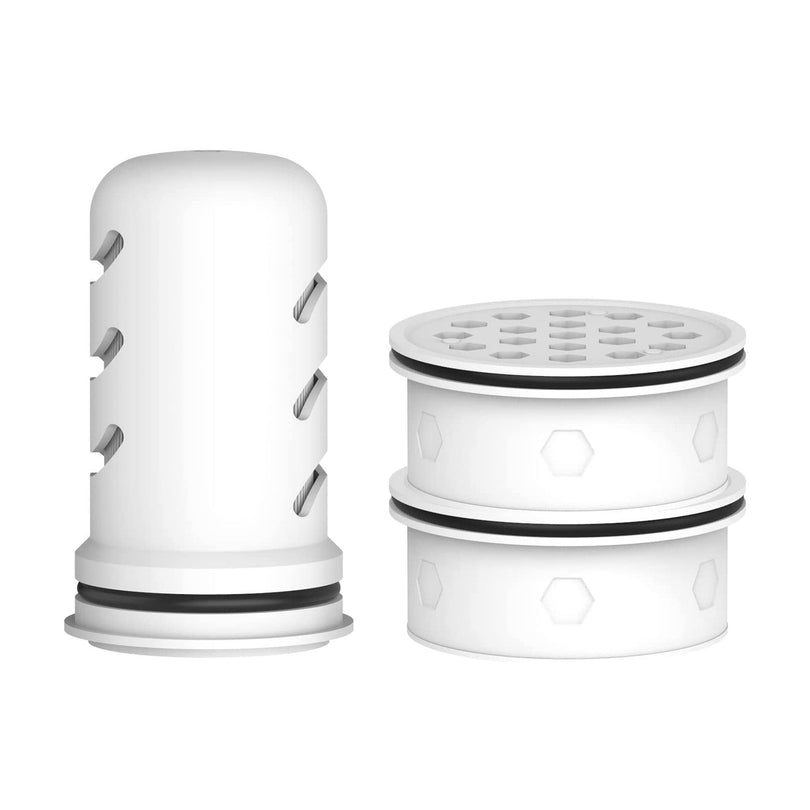Table of Contents:
Chlorinduziertes Asthma verstehen
Wie wirkt sich Chlor auf Trinkwasser aus?
Die Rolle von gefiltertem Wasser bei der Reduzierung der Chlorbelastung
Praktische Tipps zur Behandlung von chlorbedingtem Asthma mit gefiltertem Wasser
FAQs
Abschluss
Asthma ist eine chronische Erkrankung, die Millionen von Menschen weltweit betrifft. Sie verursacht Entzündungen und Verengungen der Atemwege und erschwert das Atmen. Die Auslöser können von Mensch zu Mensch unterschiedlich sein, manche Menschen reagieren jedoch empfindlich auf Umweltreize wie Pollen, Staub und sogar Chlor. Chlorinduziertes Asthma ist eine spezielle Form von Asthma, die durch Chlor, das häufig in Schwimmbädern oder kommunalen Wassersystemen vorkommt, ausgelöst oder verschlimmert wird. In diesem Blogbeitrag untersuchen wir, wie sich Chlorbelastung auf Asthmatiker auswirken kann und wie gefiltertes Wasser eine Lösung für Menschen mit chlorinduziertem Asthma bieten kann.
Chlorinduziertes Asthma verstehen
Was ist chlorinduziertes Asthma?
Chlorinduziertes Asthma bezeichnet Asthmasymptome, die durch den Kontakt mit Chlor, einem häufig in öffentlichen Schwimmbädern und kommunalen Wasseraufbereitungsanlagen verwendeten Desinfektionsmittel, ausgelöst oder verschlimmert werden. Beim Einatmen oder Aufnehmen kann Chlor die Atemwege reizen und Symptome wie Keuchen, Kurzatmigkeit, Husten und Engegefühl in der Brust verursachen. Bei manchen Menschen können diese Symptome vorübergehend sein, bei anderen können sie schwerwiegender und anhaltender sein.
Warum wirkt sich Chlor auf Asthmatiker aus?
Chlor ist ein starker Reizstoff, insbesondere wenn es mit Feuchtigkeit in den Atemwegen reagiert. Bei Kontakt mit Chlor können sich die Atemwege entzünden und das Atmen erschweren. Diese Reizung kann zu einer Verengung der Atemwege führen, die Asthmasymptome auslöst. Asthmatiker reagieren besonders empfindlich auf diese Reizung, da ihre Atemwege bereits entzündet sind und sie somit anfälliger für weitere Auslöser sind.
Häufige Quellen der Chlorbelastung
- Schwimmbäder : Zur Desinfektion von Schwimmbädern wird häufig Chlor verwendet. Ein längerer Kontakt mit chloriertem Poolwasser kann bei empfindlichen Personen zu Symptomen führen, insbesondere nach langen Schwimmeinheiten.
- Städtische Wasserversorgungssysteme : Viele öffentliche Wasserversorgungssysteme verwenden Chlor, um Trinkwasser aufzubereiten und es von schädlichen Bakterien zu befreien. Dies gewährleistet zwar die Sicherheit des Trinkwassers, kann jedoch manchmal durch Trinken und Duschen aufgenommen werden, was mit der Zeit zu Asthmasymptomen führen kann.
- Haushaltsreiniger : Einige Reinigungsprodukte enthalten auch Chlor oder Chlorbleiche, die Dämpfe freisetzen können, die beim Einatmen die Atemwege reizen können.
Wie wirkt sich Chlor auf Trinkwasser aus?
Der öffentlichen Wasserversorgung wird Chlor zugesetzt, um schädliche Krankheitserreger zu desinfizieren und abzutöten, sodass Leitungswasser trinkbar wird. Chlor reinigt zwar Wasser wirksam, kann aber auch Risiken für Personen mit Atemwegserkrankungen wie Asthma bergen.
Chlor in kommunalen Wassersystemen
Kommunen fügen dem Wasser im Rahmen der Desinfektion üblicherweise Chlor hinzu. Der Chlorgehalt im Trinkwasser wird aus Sicherheitsgründen in der Regel reguliert, doch selbst geringe Mengen Chlor können Asthmasymptome auslösen. Wenn Sie gechlortes Wasser trinken oder den Dampf einer heißen Dusche einatmen, setzen Sie Ihre Atemwege indirekt Chlor aus, was Asthmasymptome verschlimmern kann.
Mögliche Risiken von Chlor im Trinkwasser
- Chlorrückstände : Auch nach der ersten Desinfektion können Chlornebenprodukte im Wasser verbleiben. Diese Chloraminrückstände können bei Asthmatikern zu Atemproblemen führen.
- Einatmen von Chlordämpfen : Beim Duschen oder Baden kann Chlor verdampfen und eingeatmet werden, was zu weiteren Reizungen der Lunge und der Atemwege führt.
Die Rolle von gefiltertem Wasser bei der Reduzierung der Chlorbelastung
Gefiltertes Wasser kann eine Lösung für Asthmatiker sein, die sich über die Auswirkungen von Chlor Sorgen machen. Durch die Reduzierung des Chlorgehalts im Trink- und Badewasser können Wasserfilter dazu beitragen, das Risiko von Asthmaanfällen zu minimieren und die allgemeine Gesundheit der Atemwege zu verbessern.
Arten von Wasserfiltern, die Chlor entfernen
Nicht alle Wasserfilter sind gleich gut geeignet, wenn es um die Entfernung von Chlor geht. Die folgenden Filtermethoden sind am effektivsten, um den Chlorgehalt zu senken:
- Aktivkohlefilter : Diese Filter werden häufig in Wasserkrügen, Wasserhahnaufsätzen und Untertisch-Filtersystemen verwendet. Aktivkohlefilter funktionieren wie Schwerkraft-Wasserfiltersysteme, indem sie Chlor adsorbieren und aus dem Wasser entfernen.
- Umkehrosmoseanlagen (RO) : Umkehrosmoseanlagen entfernen Chlor und andere Schadstoffe wie Schwermetalle, Pestizide und Bakterien sehr effektiv. Diese Anlagen werden oft unter der Spüle oder als Filterlösung für das ganze Haus installiert und können den Chlorgehalt im Trink- und Badewasser deutlich reduzieren.
- Wasserfilter für das ganze Haus : Diese Systeme werden an der Stelle installiert, an der das Wasser in das Haus gelangt, und stellen sicher, dass das gesamte zum Trinken, Kochen und Baden verwendete Wasser von Chlor und anderen Verunreinigungen gefiltert wird.
Vorteile des Trinkens von gefiltertem Wasser für Asthmatiker
- Verringerung der Chlorbelastung : Durch das Trinken von gefiltertem Wasser verringern Sie Ihre Chlorbelastung, was dazu beitragen kann, das Risiko von Asthmaanfällen durch diesen Reizstoff zu verringern.
- Verbesserte Gesundheit der Atemwege : Eine Verringerung der Chlorbelastung im Trinkwasser kann dazu beitragen, die allgemeine Lungenfunktion zu verbessern, Entzündungen in den Atemwegen zu verringern und Asthmasymptome zu lindern.
- Bessere Flüssigkeitszufuhr : Sauberes, gefiltertes Wasser ist frei von Chlor und anderen schädlichen Verunreinigungen wie Chlornebenprodukten und sorgt so für eine bessere Flüssigkeitszufuhr und gesündere Atemwege bei Asthmatikern.
Praktische Tipps zur Behandlung von chlorbedingtem Asthma mit gefiltertem Wasser

Wenn Sie vermuten, dass Chlor Ihre Asthmasymptome auslöst, finden Sie hier einige praktische Schritte zur Reduzierung der Belastung:
1. Wählen Sie den richtigen Wasserfilter zur Chlorentfernung
Suchen Sie nach einem Wasserfilter, der speziell auf Chlor abzielt. Aktivkohlefilter und Umkehrosmoseanlagen sind die beste Wahl, um den Chlorgehalt in Trink- und Badewasser effektiv zu reduzieren.
2. Verwenden Sie einen chlorentfernenden Duschfilter
Wenn Sie Asthma haben, kann das Duschen mit chlorhaltigem Wasser Ihre Lunge reizen. Erwägen Sie die Installation eines chlorentfernenden Duschfilters, um die Chlorbelastung beim Baden zu reduzieren.
3. Bleiben Sie mit gefiltertem Wasser hydriert
Trinken Sie den ganzen Tag über viel gefiltertes Wasser. Dies hilft Ihnen nicht nur, ausreichend Flüssigkeit zu sich zu nehmen, sondern verringert auch die Wahrscheinlichkeit von chlorbedingten Atemwegsproblemen.
4. Vermeiden Sie chlorierte Schwimmbäder
Wenn Sie empfindlich auf Chlor reagieren, versuchen Sie es mit Salzwasserpools oder Pools, in denen alternative Desinfektionsmethoden zum Einsatz kommen. Wenn das Schwimmen in gechlorten Pools unvermeidbar ist, sollten Sie eine Nasenklammer und eine Schwimmbrille verwenden, um die Chlorbelastung zu minimieren.
5. Überwachen Sie die Luftqualität in Ihrem Zuhause
Erwägen Sie zusätzlich zu gefiltertem Wasser den Einsatz von Luftreinigern, um Schadstoffe in Innenräumen zu reduzieren, darunter Chlordämpfe aus Reinigungsprodukten oder Leitungswasserdampf.
FAQs
Kann gefiltertes Wasser Asthmaauslöser beseitigen?
Gefiltertes Wasser kann zwar dazu beitragen, die Chlorbelastung zu reduzieren, ein umfassender Asthmabehandlungsplan sollte jedoch auch andere Asthmaauslöser wie Allergene und Luftverschmutzung berücksichtigen.
Welche Arten von Wasserfiltern sind am effektivsten zur Chlorentfernung?
Aktivkohlefilter und Umkehrosmoseanlagen sind am wirksamsten bei der Reduzierung des Chlorgehalts im Wasser.
Wie schnell können sich Asthmasymptome nach der Umstellung auf gefiltertes Wasser bessern?
Auch wenn die Ergebnisse von Person zu Person unterschiedlich ausfallen können, kann eine Verringerung der Chlorbelastung durch gefiltertes Wasser innerhalb weniger Wochen zu einer spürbaren Verbesserung der Asthmasymptome führen.
Abschluss
Chlorinduziertes Asthma kann für Asthmatiker ein erhebliches Problem darstellen, insbesondere für diejenigen, die regelmäßig Chlor in Schwimmbädern oder kommunalen Wassersystemen ausgesetzt sind. Gefiltertes Wasser bietet eine mögliche Lösung, da es die Chlorbelastung reduziert, was zur Linderung von Asthmasymptomen und zur Verbesserung der Atemwegsgesundheit beitragen kann.
Wenn Sie unter chlorbedingtem Asthma leiden, sollten Sie auf ein Wasserfiltersystem umsteigen, das Chlor und andere Reizstoffe neutralisiert. Diese einfachen Schritte können Asthmasymptome deutlich lindern und die allgemeine Gesundheit verbessern. Folgen Sie Glacier Fresh, um weitere Wasserfilterlösungen zu entdecken.

